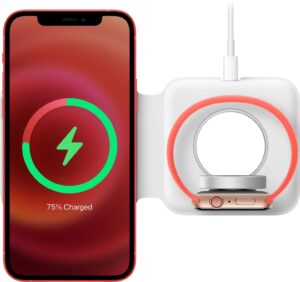Curious about whether AGM batteries really have a memory effect? Well, the myth-busting truth awaits in this insightful blog article on “Do AGM Batteries Have Memory Effect Debunking The Myth.” Prepare to have your doubts put to rest as we dig deep into the topic, providing you with a clear and concise answer. Gone are the days of uncertainty and confusion surrounding AGM batteries – we’re here to provide you with the truth, debunking the myth once and for all. So, let’s dive right in and get to the bottom of this battery-related mystery.
Do AGM Batteries Have Memory Effect? Debunking The Myth
In the world of batteries, the concept of memory effect has been a topic of debate and confusion for many years. It is often associated with older types of rechargeable batteries, such as nickel-cadmium (NiCd) batteries. However, when it comes to AGM (Absorbent Glass Mat) batteries, things are different. In this article, we will explore the truth behind the myth of memory effect in AGM batteries and provide you with a clear understanding of how they function.
Understanding Memory Effect in Batteries
Before diving into AGM batteries, let’s first understand what memory effect is all about. Memory effect refers to a phenomenon where a battery’s capacity gradually decreases over time due to incomplete discharges and recharges. This effect occurs when a battery is repeatedly charged and discharged without being fully depleted.
With older battery chemistries like NiCd, memory effect was a significant concern. These batteries would “remember” the capacity at which they were last charged, resulting in a decrease in usable capacity over time. This meant that if you consistently recharged a battery without fully depleting it, it would eventually have a reduced capacity to hold a charge.
However, AGM batteries operate on a different principle and are not prone to memory effect. Let’s explore why.
The Chemistry of AGM Batteries
AGM batteries utilize a different chemistry compared to older battery types like NiCd. They are known for their enhanced construction and performance, making them a popular choice for various applications such as automotive, marine, and renewable energy systems.
The chemistry of AGM batteries involves an electrolyte absorbed in a fiberglass mat separator, which enhances their durability and efficiency. This design allows for better control of the electrolyte and minimizes the risk of acid spills or leaks. AGM batteries are also designed to be maintenance-free and provide reliable power delivery.
The Absence of Memory Effect in AGM Batteries
One of the significant advantages of AGM batteries is their ability to resist memory effect. This is due to their chemistry and construction, which prevents the formation of memory effect-inducing crystals on the battery’s electrodes.
AGM batteries can be recharged at any time without needing to be completely discharged first. They do not “remember” the capacity at which they were last charged and can be charged and discharged without any negative consequences on their overall capacity.
This characteristic makes AGM batteries highly versatile and convenient. You can recharge them partially or intermittently without worrying about the impact on their long-term performance.
Benefits of AGM Batteries
Now that we understand that AGM batteries do not suffer from memory effect, let’s explore some of their other benefits:
- High Energy Density: AGM batteries offer a higher energy density compared to other battery types, allowing them to store more energy in a compact size.
- Deep Cycle Capabilities: AGM batteries are designed to handle deep cycling, meaning they can repeatedly discharge and recharge without significant capacity loss.
- Low Self-Discharge: AGM batteries have a lower self-discharge rate compared to traditional lead-acid batteries, making them ideal for applications where long periods of storage are required.
- Sealed and Maintenance-Free: AGM batteries are sealed, preventing acid leaks and making them maintenance-free. This eliminates the need for regular electrolyte checks and refills.
- Versatile Applications: AGM batteries are suitable for a wide range of applications, including automotive, marine, recreational vehicles, renewable energy systems, and more.
Tips for Maximizing AGM Battery Performance
While AGM batteries are highly durable and efficient, following a few best practices can help maximize their performance and lifespan:
- Avoid Overcharging: Ensure that you use a charger specifically designed for AGM batteries and avoid overcharging, as it can lead to reduced battery life.
- Store in a Cool, Dry Place: AGM batteries should be stored in a cool, dry place to prevent excessive self-discharge and degradation.
- Regular Maintenance: Although AGM batteries are maintenance-free, it is still essential to periodically inspect their terminals and connections to ensure optimal conductivity.
- Proper Discharging: While AGM batteries can handle partial discharges, periodically performing a full discharge followed by a complete recharge can help balance the battery’s cells and optimize its performance.
AGM batteries are a reliable and efficient choice for various applications, offering numerous benefits without the worry of memory effect. Their advanced chemistry and construction make them a popular choice among professionals and enthusiasts alike. Whether you need a power source for your vehicle, boat, or renewable energy system, AGM batteries are an excellent option that does not require extensive maintenance or adherence to strict charging practices. Now that you have a clear understanding of AGM batteries and their memory effect myth, you can confidently choose the right battery for your needs.
Frequently Asked Questions
Do AGM Batteries Have Memory Effect? Debunking the Myth
AGM batteries are widely used in various applications, including vehicles, boats, and renewable energy systems. However, there are misconceptions about memory effect in AGM batteries. Let’s explore some common questions and debunk the myth surrounding the memory effect in AGM batteries.
Question: Are AGM batteries prone to memory effect?
No, AGM batteries are not prone to memory effect. Unlike older battery types, such as Ni-Cd (nickel-cadmium) batteries, AGM batteries do not exhibit memory effect. This means that you do not need to fully discharge an AGM battery before recharging it. You can recharge an AGM battery at any time without affecting its capacity or overall performance.
Question: What is memory effect, and why is it not a concern in AGM batteries?
Memory effect refers to the reduction in a battery’s capacity caused by repeated shallow discharges and incomplete recharges. This phenomenon commonly affected older battery chemistries, but it is not a concern with AGM batteries. AGM batteries use a different technology (absorbed glass mat) that prevents the formation of memory effect. The design of AGM batteries allows for frequent partial discharges and recharges without affecting their performance or overall capacity.
Question: Can I partially recharge an AGM battery without damaging it?
Absolutely! AGM batteries are designed to handle partial recharges without any damage. In fact, frequent partial recharges can be beneficial for AGM batteries, as it helps to prolong their overall lifespan. So, feel free to recharge your AGM battery even if it’s not completely drained. You can top it up whenever convenient without worrying about any negative effects.
Question: How should I properly maintain AGM batteries to ensure optimal performance?
To maintain optimal performance and longevity of AGM batteries, it is recommended to follow a few key practices:
– Keep the battery terminals clean and free from corrosion.
– Store AGM batteries in a cool and dry environment when not in use.
– Avoid overcharging or undercharging the battery by using a suitable charger.
– Regularly check the battery’s state of charge and recharge it if necessary.
By following these simple maintenance practices, you can ensure that your AGM battery performs reliably and lasts for a long time.
Question: Is it necessary to fully discharge an AGM battery before recharging it?
No, it is not necessary to fully discharge an AGM battery before recharging it. AGM batteries have no memory effect, so you can recharge them at any time without waiting for a complete discharge. In fact, it is generally recommended to avoid fully discharging AGM batteries, as it can shorten their lifespan. Regularly topping up the battery whenever it’s convenient is perfectly fine and will not have any negative impact on its performance.
Final Thoughts
AGM batteries do not have memory effect, debunking the myth that has lingered for years. Unlike older battery technologies, AGM batteries are designed to be highly efficient and reliable. They can be charged at any time without the need for full discharge, allowing users to conveniently top them off whenever necessary. With no memory effect, AGM batteries offer greater flexibility and convenience, making them an ideal choice for various applications. So, if you are seeking a battery that can deliver optimal performance without any memory effect, AGM batteries are the way to go. Do AGM batteries have memory effect? The answer is a resounding no.



